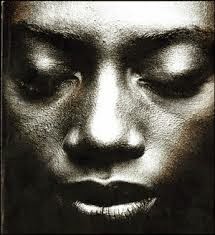First joint report on the state of Human Gay Rights in Africa
Washington, DC —
In advance of President Barack Obama’s upcoming U.S.-Africa Leaders Summit with nearly 50 African heads of state, today Human Rights First and the Human Rights Campaign Foundation, the educational arm of America's largest civil rights organization working to achieve lesbian, gay, bisexual and transgender (LGBT) equality, released a jointreport that provides brief country-specific overviews on the status of LGBT people in each of the continent’s 54 nations.
Heads of state from 32 of the 37 nations in Africa that criminalize LGBT relationships have been invited to the summit. Ugandan President Yoweri Museveni and Nigerian President Goodluck Jonathan—both of whom signed draconian anti-LGBT laws earlier this year—are scheduled to attend. The death penalty is allowed as a form of punishment in some Nigerian states, and leaders from two other nations that allow it in all or some parts of their country—Mauritania and Somalia—are also expected to participate.
“More than 800 million people live in African nations that criminalize LGBT individuals because of who they love or who they are” said Ty Cobb, HRC Foundation’s Director of Global Engagement. “Many face near-constant threats of harassment, discrimination, prosecution and violence on a daily basis, and others remain vulnerable to increasingly dangerous and concerted efforts to enact harsh anti-LGBT legislation. Supporting the human rights of all Africans, including LGBT Africans, must be an important part of our nation’s engagement.”
“We know that there are thousands of people across the African continent who are standing up for an end to violence and for full equality for all people, regardless of sexual orientation or gender identity,” said Human Rights First’s Shawn Gaylord. “These people, activists, leaders, lawyers, religious figures and others, need to know that they have support around the world and this Summit is an ideal time to signal that support.”
Human Rights First and HRC Foundation's joint report, The State of Human Rights for LGBT People in Africa, documents existing anti-LGBT laws and efforts to enact new measures; some publicly known instances of discrimination and violence; the presence and activity of LGBT rights organizations; and encouraging signs of support for LGBT people.
Announced by the White House as the “largest single engagement by any U.S. President with Africa”, the U.S.-Africa Leaders Summit will provide Obama Administration officials a chance to directly engage these leaders and their delegations on a number of critical issues. Earlier this week, Human Rights First and Human RIghts Campaign joined Council for Global Equality to urge President Obama to include civil society leaders in the summit.
Human Rights First and HRC Foundation believe that the protection and preservation of the basic human rights of LGBT Africans should be one of the many important areas of discussion. Although we recognize that every bilateral relationship is complex, and that engagement on LGBT rights must be included in the context of broader human rights discussions, we believe that leadership in this once-in-a-generation moment could encourage broader progress on the rights and treatment of LGBT Africans for decades to come.
President Obama declared in 2011 that the “struggle to end discrimination against lesbian, gay, bisexual, and transgender (LGBT) persons is a global challenge, and one that is central to the United States commitment to promoting human rights.” Secretary of State John Kerry has affirmed this commitment, and the Obama Administration has taken tangible steps to advance the cause of achieving full LGBT equality abroad.
In June, the Obama Administration announced a series of new concrete actions that held the Ugandan government and leaders in it accountable for the internationally condemned Anti-Homosexuality Act, which was enacted earlier this year. “We must put all world leaders on notice that such efforts have no place in the 21st century, and there will be severe consequences for engaging in them,” Cobb said at the time. “This creates an important precedent for leaders and governments considering implementing similar laws.”
“We remain hopeful that the United States will put LGBT issues on the agenda not as a stand-alone element but within the framework of a broad discussion of all the other vital issues affecting civil society in Africa,” said Gaylord.
The full report can be found here:http://www.humanrightsfirst.org/resource/state-human-rights-lgbt-people-africa.



Comments